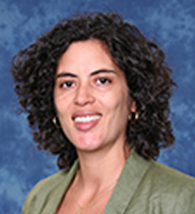 |
Sandra Alvarez is an assistant professor of political science at Chapman University and an activist
scholar involved in peace and justice movements. She earned her doctorate in politics
at the University of California, Santa Cruz, with designated emphases in Latin American
and Latina/o studies and feminist studies. Her research focuses on critical human
rights, sovereignty, feminist methodologies, and transnational advocacy networks,
particularly the theory and practice of indigenous social movements across the Americas. |
 |
Mijin Cha is an assistant professor of urban and environmental policy at Occidental College.
She is also a fellow at the Worker Institute (Cornell University) and a senior fellow
at Data for Progress. Dr. Cha's research explores the intersection of inequality and
climate change, particularly labor/climate coalitions. Her current research focus
is on just transition: how to transition fossil fuel communities and workers equitably
into a low-carbon future. Dr. Cha received her B.S. from Cornell University, J.D.
from the University of California, Hastings, and LLM and PhD degrees from the University
of London, SOAS. |
 |
Rick Cole is an adjunct professor at Occidental College's Urban and Environmental Policy Institute
and serves as Housing and Homelessness Advisor to the San Gabriel Vally Council of
Governments. He served as Mayor of Pasadena and Deputy Mayor for Budget and Innovation
in Los Angeles and is the former City Manager of the cities of Azusa, Ventura and
Santa Monica. Rick has been recognized as one of “America's Public Officials of the
Year” by Governing Magazine and one of the "Top 25 Doers, Dreamers and Drivers" by Government
Technology Magazine. He has won awards for municipal management excellence from the
American Society of Public Administrators and the Municipal Management Association
of Southern California.
|
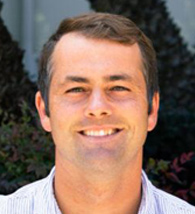 |
Eric Daniel Fournier is the acting research director at the California Center for Sustainable Communities
(CCSC) within UCLA’s Institute for the Environment and Sustainability. Most recently,
Eric functioned as the lead data scientist on a two-year planning project funded by
the California Energy Commission’s (CEC) EPIC Research Program. Eric obtained his
bachelor’s of science in environmental science at Bucknell University (2008). He also
holds a master of environmental science degree from the Yale School of Forestry &
Environmental Studies (2010), a master of arts in geography from the University of
California at Santa Barbara (2014), and a doctorate in environmental informatics from
UCSB’s Bren School of Environmental Science & Management (2015). |
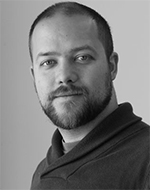 |
Zeke Hausfather is a climate scientist and energy systems analyst whose research focuses on observational
temperature records, climate models, and mitigation technologies. He currently serves
as the Director of Climate and Energy at the Breakthrough Institute. He previously
spent 10 years working as a data scientist and entrepreneur in the cleantech sector,
where he was the lead data scientist at Essess, the chief scientist at C3.ai, and
the cofounder and chief scientist of Efficiency 2.0. He also worked as a research
scientist with Berkeley Earth, was the senior climate analyst at Project Drawdown,
and the US analyst for Carbon Brief. He has masters degrees in environmental science
from Yale University and Vrije Universiteit Amsterdam and a PhD in climate science
from the University of California, Berkeley.
|
 |
Jennifer Hernandez has practiced land use and environmental law for more than 30 years and leads Holland
& Knight's West Coast Land Use and Environmental Group. Ms. Hernandez is the only
California lawyer ranked by her clients and peers in Chambers USA in the top tier of both land use/zoning and environmental lawyers. In addition, she
was recognized as the top environmental litigator of the year in the San Francisco
Bay Area by Best Lawyers and received a California Lawyer of the Year award from the State Bar of California.
She also has received numerous civil rights awards for her work on overcoming environmentalist
opposition to housing and other projects needed and supported by minority communities. |
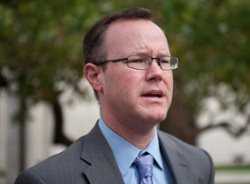 |
Mike Houston is the Chief Counsel of the Southern California Association of Governments (SCAG),
a government agency that serves as the metropolitan planning organization for six
counties, 191 cities and over 19 million residents. SCAG is the nation’s largest
metropolitan planning organization, undertaking a variety of planning and policy initiatives
to encourage a more sustainable Southern California. Mr. Houston heads SCAG’s Legal
Services Department. Prior to assuming this role, Mr. Houston served as Senior Vice
President, General Counsel and Secretary for Tejon Ranch Co., the owner of the largest
single piece of privately owned property in California. From 2013 to 2016, Mr. Houston
served as the City Attorney of Anaheim, California’s 10th largest city. Mr. Houston’s
background as the chief legal advisor of a regional government agency, a large city
and a private landowner provides a unique perspective to the panel’s discussion.
|
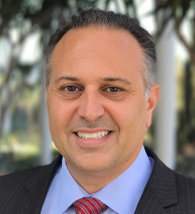 |
Seimone Jurjis was selected as the community development director for the City of Newport Beach
in August 2017, having previously served as the city’s chief building official. In
his current functions, he oversees the divisions of planning, building, code enforcement,
and real property. He oversees a department of 70 dedicated and committed full- and
part-time employees with an annual budget of $13 million. His department processes
and permits over $1.2 billion annually in real property investments in the city. Mr.
Jurjis has spent the last 26 years working in both the private and public sectors
holding the positions of chief building official, city engineer, and director of planning.
Mr. Jurjis has a bachelor of science degree in civil engineering and is a licensed
professional civil engineer, licensed real estate broker, licensed engineering contractor,
certified building official, and licensed pilot. |
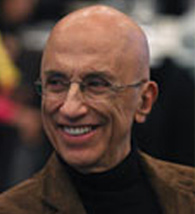 |
Menas C. Kafatos is the Fletcher Jones Endowed Professor of computational physics at Chapman University
and the director of the Center of Excellence in Earth Systems Modeling and Observations
(CEESMO). As founding dean of the Schmid College of Science and Technology and vice
provost at Chapman, he promoted and established interdisciplinary educational and
research projects, and subsequently as Director of CEESMO, he led many science grants.
His doctoral thesis advisor was the renowned M.I.T. professor Philip Morrison who
studied under J. Robert Oppenheimer. Author, physicist and philosopher, he works in
quantum mechanics, cosmology, the environment, climate change, and natural hazards,
and extensively on philosophical issues of consciousness, connecting science to metaphysical
traditions. |
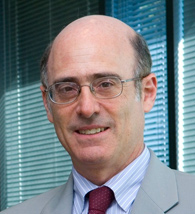 |
Robert Lempert is a principal researcher at the RAND Corporation and director of the Frederick S.
Pardee Center for Longer Range Global Policy and the Future Human Condition. His research
focuses on risk management and decision-making under conditions of deep uncertainty.
Dr. Lempert is a fellow of the American Physical Society, a member of the Council
on Foreign Relations, a convening lead author for Working Group II of the United Nations
Intergovernmental Panel on Climate Change (IPCC) Sixth Assessment Report, and a professor
of policy analysis in the Pardee RAND Graduate School. Dr. Lempert is an author of
the book Shaping the Next One Hundred Years: New Methods for Quantitative, Longer-Term Policy
Analysis. |
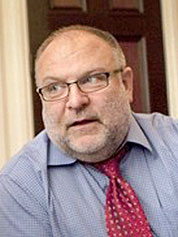 |
Kip Lipper is chief policy advisor on energy, natural resources, and the environment to the
California State Senate President pro Tempore, the Senate’s Majority Leader. Lipper
has drafted and analyzed legislation on a broad array of energy, climate, and environmental
matters. He drafted and analyzed legislation on energy policy such as the state’s
landmark 20%, 33%, and now 100% Clean and Renewable Energy Standard, energy conservation,
electric vehicles, public interest energy research, and energy-agency reorganization
and reforms. Lipper was the lead Senate staffer on the drafting of AB 32, the Global
Warming 2 Solutions Act of 2006 and SB 350, the Clean Energy and Pollution Reduction
Act of 2015. H Lipper was lead staffer in drafting SB 100, California’s 100% clean
energy mandate legislation that is now being replicated in other states.
|
 |
Joe Mathews is innovation editor and syndicated California columnist at Zócalo Public Square,
a Los Angeles-based media nonprofit and Arizona State University affiliate. Joe’s
weekly column appears in 30+ newspapers across California. Joe was formerly a reporter
at the LA Times, Wall Street Journal and Baltimore Sun, and a senior fellow at the New America Foundation. He is co-author of California Crackup: How Reform Broke the Golden State and How We Can Fix It and author of The People’s Machine: Arnold Schwarzenegger and the Rise of Blockbuster Democracy. Joe also serves as co-president of the Global Forum on Modern Direct Democracy,
which will be held in Bern, Switzerland, in September 2020, and in Mexico City in
October 2021. He, his wife Anna, and their three sons live in South Pasadena. |
 |
Richard A. Matthew (BA McGill; PhD Princeton) is associate dean for research and international programs;
professor of urban planning and public policy; and director of the Blum Center for
Poverty Alleviation at UC Irvine. He is also a Senior Fellow at IISD in Geneva, a
member of the United Nations Expert Group on Environment, Conflict and Peacebuilding,
and the Vice-President of the Environmental Peacebuilding Association. His research
focuses on understanding and addressing human security and conservation challenges
at the intersection of severe environmental stress, extreme poverty and violent conflict.
He has done extensive fieldwork in conflict and disaster zones worldwide. He has given
four TEDx talks and been a featured storyteller on The Moth twice. He has over 180
publications. |
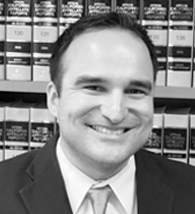 |
Michael A. (Mike) Moodian teaches for Chapman University’s integrated educational studies program, codirects
Wilkinson College’s Orange County Annual Survey, and serves as an associate professor
of social science at Chapman-affiliated Brandman University. Moodian is one of Gov.
Jerry Brown’s appointees to the California Commission on Judicial Performance. He
is the editor of the textbook Contemporary Leadership and Intercultural Competence (Sage, 2008). Moodian is the former chairman of the World Affairs Council of Orange
County. |
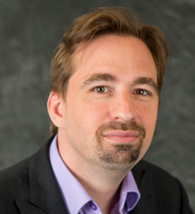 |
Josiah Neeley is a senior fellow in energy policy at the R Street Institute, where he advises the
institute’s energy team, which works to advance a well-defined and limited role for
government in shaping decisions about infrastructure; wholesale and retail electricity;
research and development; fuel choice and diversity; and climate adaptation and mitigation.
Josiah's work has appeared in a variety of publications, including The Washington Post, The Weekly Standard, The American Conservative, The Federalist,
and the Dallas Morning News. Josiah has a bachelor’s degree in government and philosophy from the University of
Texas and a juris doctorate from Notre Dame Law School. |
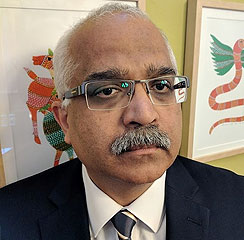 |
Aseem Prakash is Professor of Political Science, the Walker Family Professor for the College of
Arts and Sciences, and the Founding Director of the Center for Environmental Politics
at University of Washington, Seattle. He is a member of National Academies of Sciences,
Engineering, and Medicine's Board on Environmental Change and Society and International
Research Fellow at the Center for Corporate Reputation, University of Oxford. He was
elected to the position of the Vice President of the International Studies Association
for the period, 2015-2016. His recent awards include the American Political Science
Association's 2020 Elinor Ostrom Career Achievement Award in recognition of "lifetime
contribution to the study of science, technology, and environmental politics," the
International Studies Association's 2019 Distinguished International Political Economy
Scholar Award that recognizes "outstanding senior scholars whose influence and path-breaking
intellectual work will continue to impact the field for years to come," as well its
2018 James N. Rosenau Award for "scholar who has made the most important contributions
to globalization studies" and the European Consortium for Political Research Standing
Group on Regulatory Governance's 2018 Regulatory Studies Development Award that recognizes
a senior scholar who has made notable "contributions to the field of regulatory governance.
|
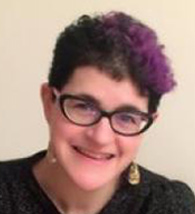 |
Deborah Seligsohn is assistant professor of political science at Villanova University. Her research
focuses on Chinese politics and on energy and environmental politics in China and
India. Prior to receiving her PhD in political science and international affairs from
UCSD in 2018, she worked in both the NGO and government sectors on energy, climate
and the environment. From 2007 to 2012, she was based in Beijing as the principal
advisor to the World Resources Institute’s China Energy and Climate Program. She also
had over 20 years of experience in the U.S. Department of State, working on energy
and environment issues in China, India, Nepal and New Zealand. Her most recent position
was as environment, science, technology and health counselor in Beijing. |
 |
David Shafie's research and teaching interests include public policy, environmental politics, and
California politics. His most recent books are Presidential Administration and the Environment, published by Routledge, and Eleventh Hour: The Politics of Policy Initiatives in Presidential Transitions (Texas A&M University Press). He is co-author of Rethinking California: Politics and Policy in the Golden State (Longman, 2nd ed.) and he has published articles in American Behavioral Scientist, The Journal of Information Technology and Politics, and The Southeastern Political Review. Dr. Shafie has been a Fulbright Scholar in the Republic of Azerbaijan, where he
taught public policy. He is a core faculty member in Chapman’s environmental science
and policy program and serves as coordinator of the environmental studies minor. |
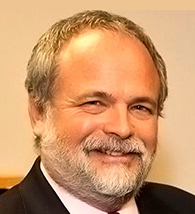 |
Fred Smoller is associate professor of political science at Chapman University, where he has been
on the faculty since 1983. He received his Ph.D. from Indiana University. His major
area of interest is American politics, with an emphasis on media and politics, local
government, and public administration. Smoller directs Chapman’s annual local government
conference and is the author of the 2018 book From Kleptocracy to Democracy: How Citizens
Can Take Back Local Government. |
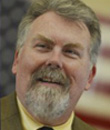 |
Dr. Ronald Steiner oversees the LL.M. program at Chapman University Fowler School
of Law, and his scholarship generally examines the intersections of law and public
policy. He earned a B.A. (English) from Lafayette College; an M.A. (Political Science)
from University of Delaware; a J.D. (Order of the Coif) from the University of Southern
California Law School; and a Ph.D. in Political Science from the University of Minnesota.
Dr. Steiner served as a clerk for Judge Ferdinand F. Fernandez of the United States
Court of Appeals for the Ninth Circuit, and as an extern for Justice Miriam Vogel
of the California Court of Appeal. He worked for several years with the major international
law firm of Sidley Austin, handling appellate and law-intensive litigation, including
telecommunications regulatory proceedings before the FCC and an historic set of proceedings
litigating forced labor claims by World War II era POWs against Japanese corporations.
In addition, he served in 1999 and 2000 as Deputy Counsel on the California Governor’s
Blue Ribbon Advisory Panel on Hate Groups. On a leave from the School of Law, he served
as a temporary Deputy District Attorney for Orange County, California.
|
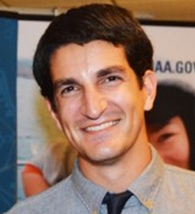 |
Jake Thickman earned a bachelor of science degree in environmental science from the University
of Florida and a master’s of science in marine science from Stony Brook University
on Long Island, New York, where he served as a senior research analyst for the New
York State Resiliency Institute for Storm Emergencies in the wake of Hurricane Sandy.
Mr. Thickman went on to complete a fellowship through the NOAA Digital Coast program
based at the national headquarters of the Association of State Floodplain Managers,
focusing on coastal flood risk management and policy. As a coastal scientist for Moffatt
& Nichol, Mr. Thickman now applies his background in coastal community hazard resilience
and coastal ecosystem health to sea-level rise challenges in coastal areas. |
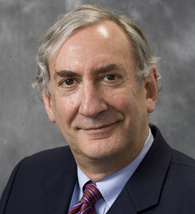 |
David Vogel is professor emeritus, Haas School of Business, Department of Political Science,
University of California, Berkeley. He is the author of several books on environmental
policy and politics in the United States, Europe, and internationally. His most recent
book is California Greenin: How the Golden State Became an Environmental Leader (2018). In 2017 he received the Elinor Ostrom Career Achievement Award for his lifetime
contribution to the study of environmental politics. |






















